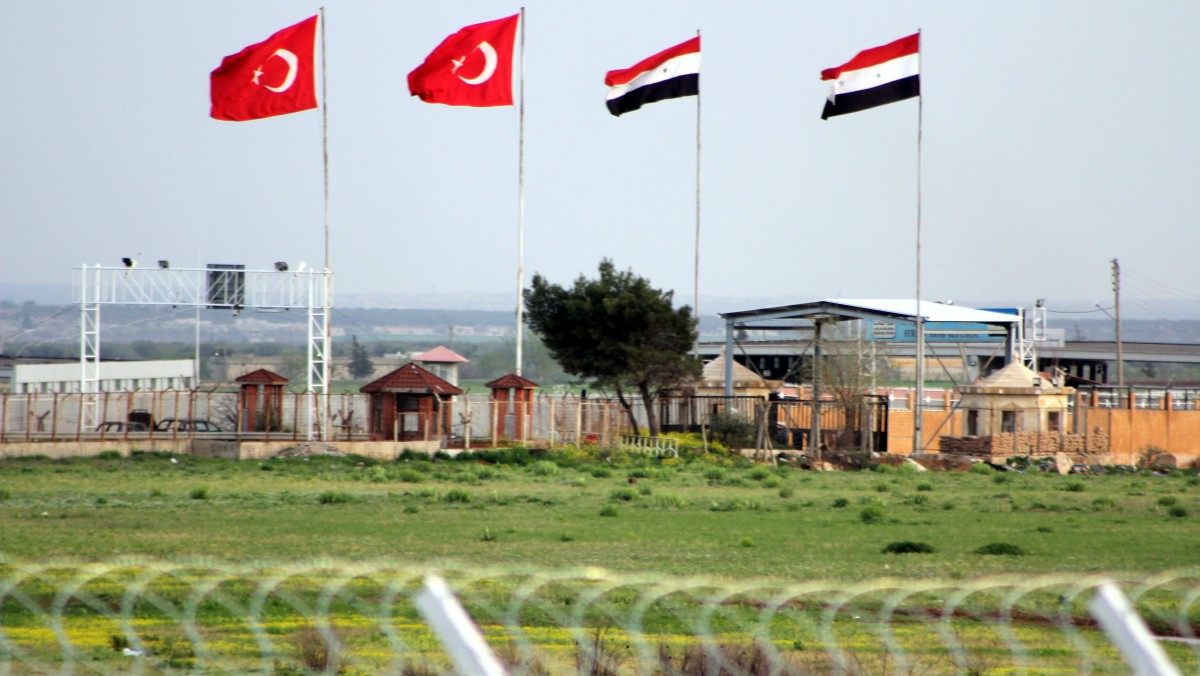Before the uprising against the Syrian government of Bashar al-Assad,
and the ensuing carnage, an estimated 600 to 700 carloads of shoppers
used to cross the border each weekend to Antakya, the ancient city of
Antioch, in the Hatay Province of south-central Turkey, to buy fashions
and housewares.



No longer. Sales at the city’s covered market are down about 10 percent
by some merchant’s estimates. The situation is far worse for stores in
the Halep Bazaar sector of the market, which catered mostly to Syrians.
(Halep is the Turkish name for Aleppo, the city in Syria.) The lack of
Syrian shoppers has reduced their trade to a trickle.
Ali Karasu stood downcast inside his bedding shop late last month,
having given up nearly all hope of selling what he advertises as dowry
furnishings. His business, he said, has been affected “100 percent” by
the strife in Syria.
Waving at boxed sets of ruffled deep purple and crimson bedspreads, Mr. Karasu said he was living off his savings and had stopped restocking his
shelves.
“I used to have 50 or even 100 Syrian people coming here every weekend
to buy my blankets,” he said. “Now there’s not even one.”
Next door, at Naim Burc Ticaret, its shelves jammed with sheets, towels
and fabric by the meter, Huseyin Burc, the manager, said his business
had fallen 50 percent or 60 percent in the past year. He said many of
the businesses that depended on the Syrians were about to collapse, and
that he was depleting his savings in order to not lay off any of his
four workers.
In addition to the financial toll, shopkeepers are battling a psychological burden.
“Every day, these horrors are in my mind,” Mr. Burc said. “I know that
over there someone is being tortured or losing their legs, or a family
member. It’s always weighing on my mind. In this market everybody has at
least distant relatives there.”
He is also worried that the sectarian violence in Syria might spread to
Turkey. “We have no arguments here now between the different groups.
Everybody gets along,” he said. “But that was true in Syria, too, for a
long time.”
Other sectors are also being affected by the strife, according to Ergun Beserikli, assistant general secretary for the Antakya Chamber of
Commerce.
Leading businesses in the region included agriculture, transportation
logistics, tourism and the manufacture of furniture and shoes, he said,
along with cultural tourism as travelers from Europe and the United
States came to see early Christian religious sites like the church of
St. Peter, carved into a mountainside above the city.
The farmers of Hatay Province sent cotton, flour, olive oil, fruit and
vegetables to customers in neighboring Middle East countries, the
province’s biggest export market, he said.
But exports fell last year to $97 million in 2011 from $118 million in 2010, as the eastern border closed.

“After the Syrian problem started, both sides lost,” said Mr. Beserikli.
“While we imported tea, sugar and eggs from Syria, we exported
souvenirs, textiles and shoes to Syria. Now that has all stopped.”
“Before, people would drive over every day to buy from us,” he added.
“They used our airport as a stopover from the Middle East to Istanbul,
and spent money here. We built new shopping malls, including one set to
open in 2013. This was our plan for the future. But now, who will come?”
Business leaders in Antakya have asked the central government in Ankara
for help. Mr. Beserikli said that the chamber’s president and the board
of directors went to Ankara three months ago to talk to ministers in the
government of Prime Minister Recep Tayyip Erdogan to try to find a
solution.
Asked if there had been any progress, Mr. Beserikli said he preferred
not to comment. He noted, however, that the central government does
offer an incentive program for investors in the region.
While that may be too little, too late for the merchants of the Halep
Bazaar, many of them say they do not blame the thousands of Syrian
refugees who are crowding into border camps that are financed by Turkey.
Nurettin Binicioglu, who runs a scarf and clothing store near the Halep
Bazaar, tries to keep his own business losses in perspective.
“I’m very worried about what is happening to the people over there,” he
said, his voice rising with frustration. “It’s more important than our
business. When you see them coming over wounded, or dead, our hospitals
full of the wounded, the problems the women and children in the refugee
camps have, alone and struggling to care for the children. It’s
heartbreaking.”
Mr. Binicioglu, whose grandparents were from Syria, said he was housing
some of his other Syrian relatives at his mother’s home in a nearby
town. “If they go back, they might be killed,” he said. “Even if they
wanted to go, I wouldn’t let them. It’s safer here.”
“When you visit the refugee camps, you see people in pain and it kills
you,” he added. “You see the kids always crying, unable to forget the
frightening things they saw. There are people being killed or wounded
every day. Some day it could happen to us.”
He then echoed the sentiments of several merchants at the Halep Bazaar,
urging NATO and the United Nations to intervene quickly.
“This is an international crisis. It’s not just about Turkey,” he said.
“The West intervened in Iraq, so why don’t they do anything in Syria?
They have the power, but they do nothing. We have to insist they find an
answer to help the people in Syria. And please, hurry up.”
No comments:
Post a Comment